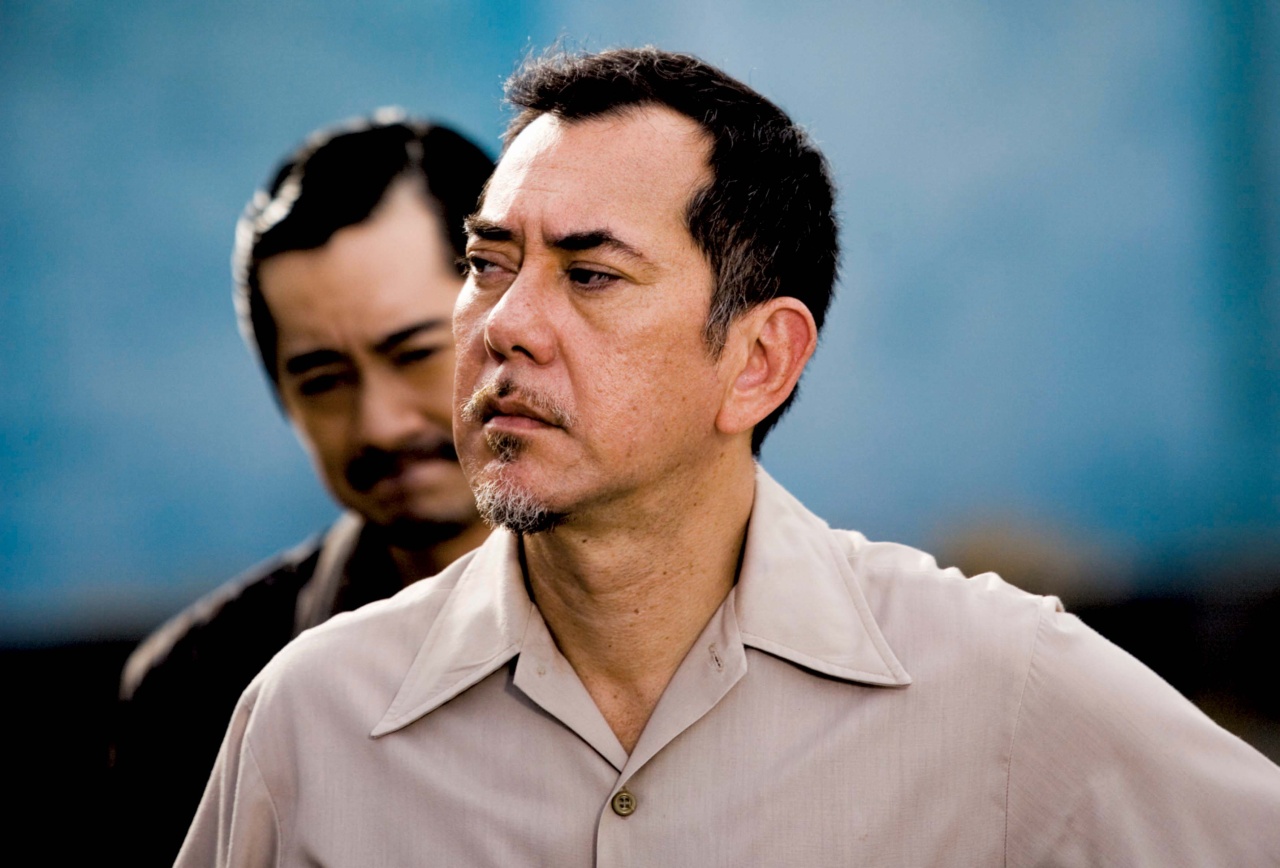By Chlotrudis Independent Film Society
Rating: 4 cats
Director: Nelson Yu Lik-wai
Starring: Anthony Wong Chau-sang | Jeff Chen | Jô Odagiri | Millhem Cortaz | Phellipe Haagensen

Original language title: Dangkou
Country: brazil, china, hong_kong, japan
Year: 2009
Running time: 118
IMDB: http://www.imdb.com/title/tt1054119/
Jason says: “PLASTIC CITY was presented as part of the ‘Hong Kong Film – New Action!’ series… So one might be a bit surprised to find that one of its main characters is Japanese and it is set in Brazil, of all places. Despite all that, it tells a familiar tale of shifting loyalties in a dangerous underworld that many Hong Kong film fans should enjoy.
“Meet Kirin (Joe Odagiri). He and his father Choi Chi ‘Yuda’ Leung (‘Anthony’ Wong Chau-sang) are big names in selling knock-offs in São Paulo, operating entire shopping centers. They’re about to feel the squeeze from both sides, though: A slick new operator calling himself ‘Mr. Taiwan’ has arrived in town, offering new wares made in the same factories as the real thing after hours, thus being'”not fake, but not authentic.’ The corrupt city official who always made sure to look the other way, Coelho (Antônio Petrin) is getting visits from people in government, saying that globalization requires them to show some results of cracking down on the knock-offs – far enough to cut into Kirin’s and Yuda’s business, which they really cannot afford.
“The first half of the movie isn’t quite standard crime, but it does seem kind of like writer/director ‘Nelson’ Yu Lik-wai has mostly put a fresh coat of paint on known gangster tropes: You’ve got the son who is perhaps not quite so ruthless as the father was at his age, the new competition moving in, the clubs that are seedy once a thin veneer is scraped away. It’s a highly enjoyable new coat of paint, though: The business of knock-offs lets the audience initially look at the characters in a slightly more sympathetic light (cheap consumer goods aren’t exactly heroin), and a Brazilian busy, crowded city is more colorful and obviously multi-ethnic than what we usually see in Hong Kong.
“The second half gets weird. A street fight so bloody and bizarre that I was convinced that it had to be some sort of dream sequence is the first obvious signal that Yu isn’t just going to play out the standard gritty gangster tropes. It becomes about personal loyalty and self-destruction, or maybe redemption, or maybe the line between those last two is very easily blurred. The story takes a lot of weird turns, but to Yu’s credit they don’t wind up feeling random; even before he’s filled in all the facts, it does feel like the various bits of strangeness come from someplace internal.
“Anthony Wong Chau-sang, in particular, sells how much complexity may lie under Yuda’s surface. He puts very slight variations into the character’s body language, slumping ever so slightly when he gets to something where he may feel a bit guilty or vulnerable, but never enough to make the character appear over his head. His momentary breakdowns later in the movie are impressive; we believe he has seen something profound but don’t need any speechifying or over-emoting to get the point.
“Joe Odagiri has a somewhat less complicated character. We see that Kirin is not burdened by the experience and weight of history that Yuda is, and he’s still somewhat naïve (in an interesting change-up, he appears to be the one more resistant to changing with the times, as opposed to the older Yuda). Odagiri does a nice job of projecting a lot of surface savvy and then growing in response to his difficulties.
“(One thing I’d be interested to know is how well Wong and Odagiri handle their Portugese dialogue – both in terms of whether it was good enough to sell that the pair had lived in Brazil for 25 years, and because I saw this not long after Dream, where Odagiri spoke Japanese in an otherwise Korean-language film)
“Yu has an interesting filmography; both the films he’s made as a director of photography and writer/director are often a bit on the unusual side. He puts that experience as a cinematographer to good use, capturing the environment without a lot of ‘hey, check out how pretty the rain forest is’ helicopter shots. He also does a fine job of transitioning the movie from being about Kirin and Yuda, purveyors of knock-offs, to something about them as father and son, without it ever feeling like a bait and switch.
“Not without bumps – the main characters could sometimes stand to be a little more talkative, especially when making strange decisions – but well enough. Even as someone who is usually more curious about the procedural details than gangsters’ personal lives, I found it an impressive bit of work. 4 cats
” Seen 20 June 2009 at IFC Center #1 (New York Asian Film Festival)“
